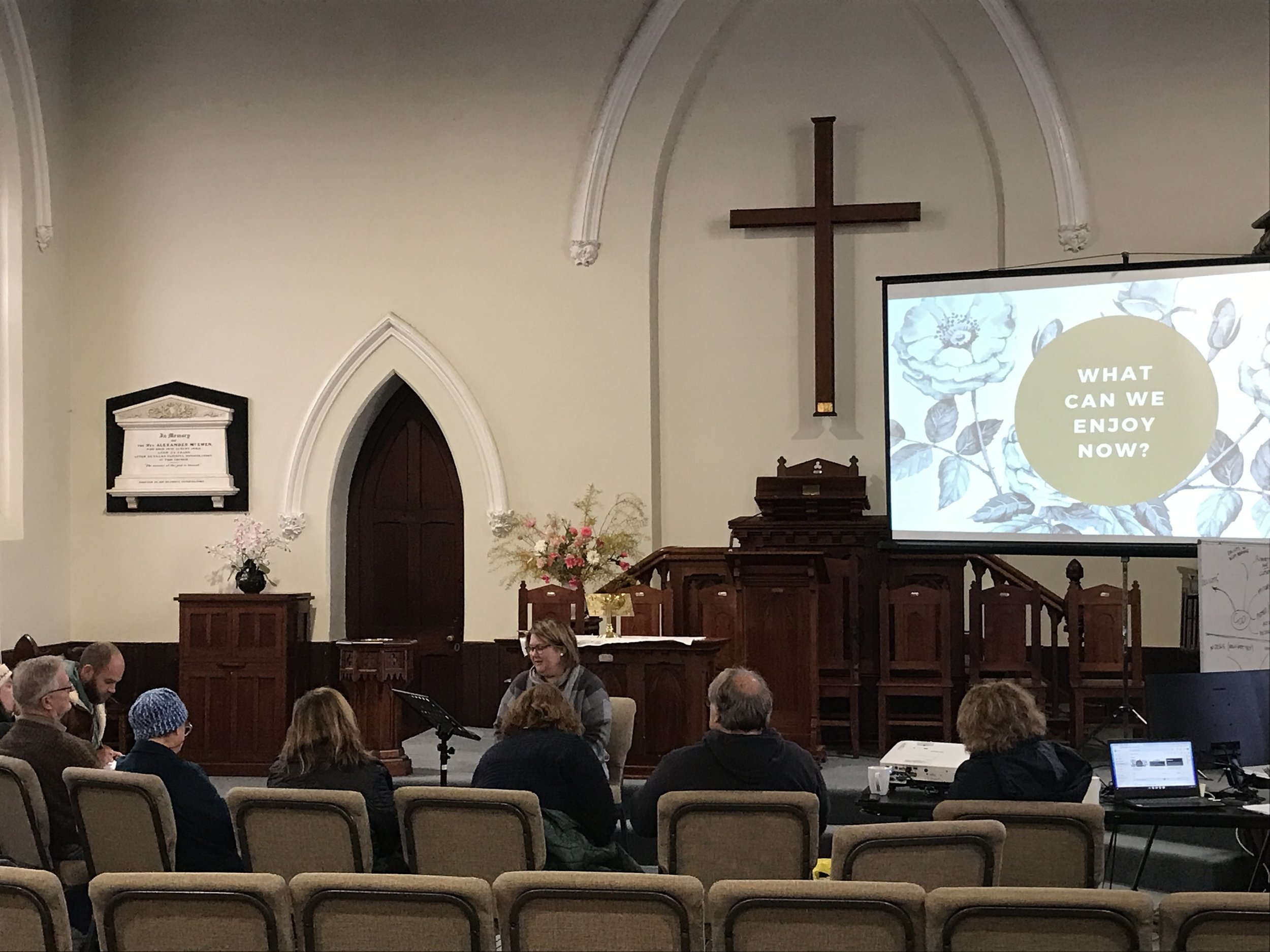Care in the country: Studying the Graduate Certificate of Pastoral Care for Mental Health
Liz and her family enjoying Jervis Bay, near Nowra
Liz Halbisch has loved the country for a long time. She grew up in northern Sydney, but moved to the regions after university with her husband Ian. He’d grown up in the country, and his heart for ministry in regional areas remained – a heart he came to share with Liz.
“We've always liked the small-town style of life and the way that you can have such deep relationships with people,” Liz says.
But the sad fact is that people in regional areas have significantly less access to services than those living in cities - a fact that Liz has particularly noted in the area of mental health support.
Liz works alongside her husband in pastoral ministry. He is a Presbyterian minister and Liz often goes on pastoral visits with him as well as leading Bible study groups and meeting with women one-to-one.
From Mudgee to Nowra: even with a change in town the same topics keep coming up.
She and her family, including three teenage children, recently moved from Mudgee to Nowra, but even with a change in town the same topics keep coming up. Liz says a lot of the pastoral conversations she has been having with people are related to mental health, and how it fits within a Christian worldview.
“I felt like every second conversation I was having was with somebody wanting to know more about what the Bible said about mental healthcare and how they could approach their own mental illness and still be a Christian”
“I felt like every second conversation I was having was with somebody wanting to know more about what the Bible said about mental healthcare and how they could approach their own mental illness and still be a Christian,” she recalls.
One young woman in particular that Liz had been discipling at their previous church in Mudgee was struggling with her mental health to a degree that was beyond Liz’s capacity to help. Liz continued to disciple her and walk alongside her, but felt ill-equipped to know how to best support her.
It was around this time that Liz found out about the Graduate Certificate of Pastoral Care for Mental Health at Mary Andrews College. She instantly recognised the value this course would offer her as a pastoral carer, and enrolled.
Liz has enjoyed her experience of studying the Graduate Certificate, saying it has been both real and practical. It’s also been helpful for navigating conversations with people who have exaggerated ideas about how the mental health stigma amongst Christians.
“It's so topical! Mental healthcare at the moment is everywhere. It's in politics, education, youth, aging, it's in everything. So to have thought about what the Bible says about it, and to remove and reframe that awful stigma that is associated with Christians and mental health, that often associates poor mental health with demons and a need to “pray away” the need for medication, is just so important,” she says.
“I have found that everything that we've done has been useful and all of the things that we've covered have been things that I've used every day.”
“I have found that everything that we've done has been useful and all of the things that we've covered have been things that I've used every day. The best thing about it has been that I use something that I've learned in every pastoral conversation that I have.”
One of the drawcards for Liz in studying with MAC was that she was able to complete her course online, from her home in Mudgee and now in Nowra. “That has been excellent and I've found it to be really accessible, and really easy to do. I wouldn't have been able to do it at all otherwise, because I don't live close enough to be able to attend lectures in person. Having the online classroom as well as the library online has meant I havent had to go anywhere to be able to do it. I've been able to do it all from home,” Liz explains.
And the young woman in Mudgee? After Liz had been studying the Graduate Certificate for almost two year, this woman began to really trust that what Liz was saying was biblical and she finally felt comfortable to seek out help from a psychologist.
“She'd started seeing a psychologist who then referred her to a psychiatrist and then she was starting to question whether or not she should be on medication. So I was able to talk to her about that. She's tracking much better now, initially, she was really worried that something would happen in psychological treatment that would pull her away from Jesus. I was able to reassure her and talk about God’s plan for our flourishing, ” Liz shares.
Liz describes her role as a ‘helper’, noting that a Chrstian pastoral carer is only ever a helper, and not as a replacement for mental health workers, as the two need to work hand in hand. One of the positives of this helper role is being able to provide practical support that a medical professional wouldn’t be able to.
“We can have relationships with people and invite them to our house for dinner and all of those great things that medical professionals can't do,” she says.
Liz stresses it's important for a Christian pastoral worker to have the ability to recognise when a person needs help and support beyond what they’re capable of in a volunteer capacity. But she notes that just because a professional gets involved, that doesn't mean that she has to say goodbye to the person she's been helping.
Overall, Liz is deeply grateful for her studies, for how it has equipped her for ministry, but also how it has deepened her personal relationship with God.
“I have constantly been reminded about how God is interested in the little things. He's amazing and huge and he created all of us, but he is interested in when I have a bad day and I'm feeling awful. Those things can feel like little things, but he's interested in all of those things. Even the tiniest little bits of brain chemistry, he's in control of all of that.”



